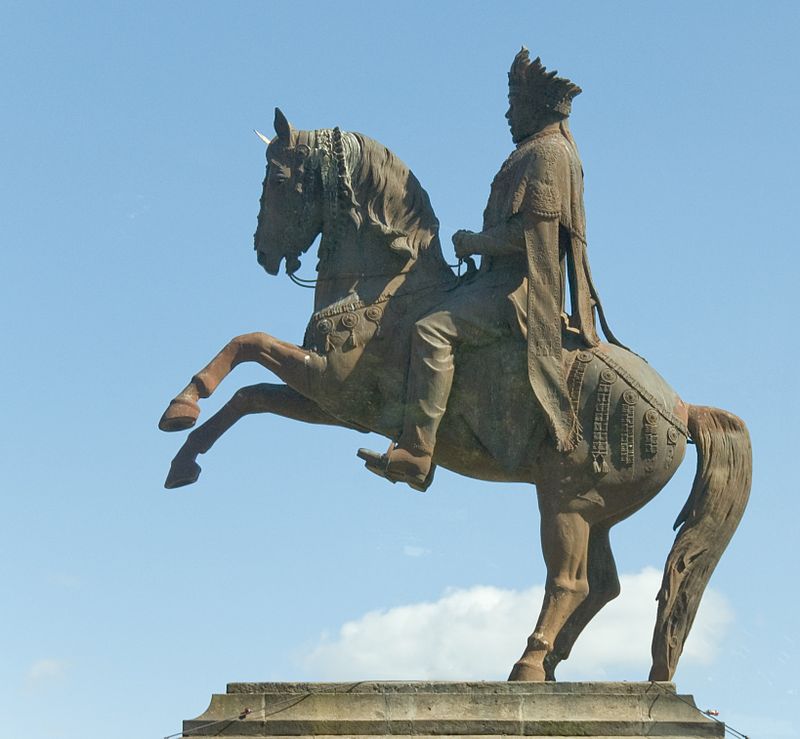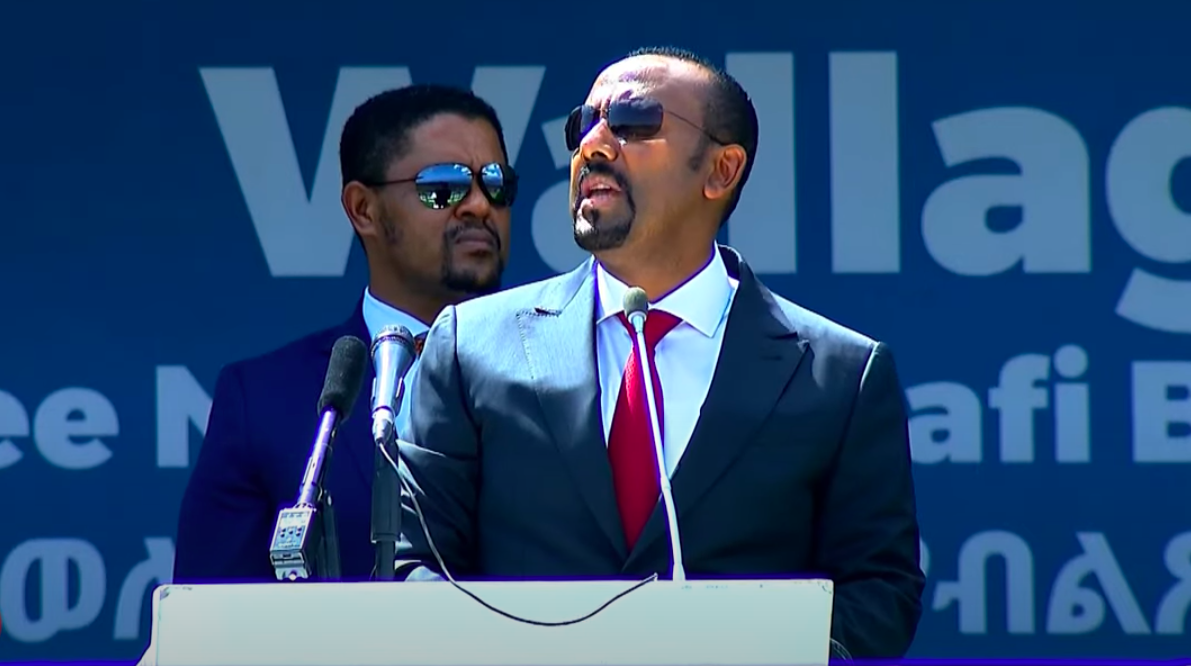|
Getting your Trinity Audio player ready...
|
On May 8th, Prime Minister Abiy Ahmed, accompanied by senior government officials, traveled to Naqamtee, Western Oromia, where he delivered a speech in a stadium packed with local civil servants carefully transported from all four zones of Wallaga for the occasion.
His speech was divided into three sections: Security, Unity, and the Economy. Also evident was his excessive use of evangelical jargon likely aimed at connecting with his audience, as Western Oromia has a sizeable Protestant Christian population.
Security
Addressing security, Prime Minister Abiy emphasized that the Oromo people had endured over a century of domination, during which “their identity was dehumanized, the use of their language banned, and their rights over their land and country usurped.”
He said the Oromo people were in effect “reduced to second-class citizens on their own land.”
“In that era,” PM Abiy told the audience, “it was imperative to resist and do what is necessary as part of the anti-colonial struggle.”
After all, “who could live in peace after losing their identity, language, and land?”
According to Abiy, all of that is now history. “The Oromo people have been liberated. The language question has been answered; what remains is how to make Afaan Oromoo known globally, and make it a language of technology and development.”
Another long-standing demand that has historically driven Oromo politics, the right to self-rule, has also been achieved, according to the Prime Minister.
“Through immense sacrifice, including the loss of their dear children, the Oromo people have realised their right to govern themselves and rule over their territories,” he said.
As such, he contends political demands in Oromia must extend beyond self-rule to include issues such as development and access to quality services.
PM Abiy described his experience as a member of the Oromo Peoples Democratic Organization (OPDO), a party founded by Tigrayan elites in the final years of their rebellion, as one in which “new ideas and discussions were not welcomed.”
And so, “we resisted, paid a price, and with God’s help, emerged victorious.”
“It’s imperative that we protect this victory and work towards realizing Ethiopia’s development. Insisting on fighting for language rights, Oromia, Oromummaa, Oromo nationalism, and self-rule at present amounts to living in the past,” he warned.
“We need to forget the past and arm ourselves for the future,” he added.
The premier also claimed that Oromos find it difficult to engage in conversation among themselves, but seem to have no difficulty in communicating with “the enemy.”
“Where in Oromo culture did this come from?” he asked the audience, adding, “What characterizes our culture and identity is discussion and translating what is agreed upon on the ground. Engaging with the enemy is shameful. We need to learn from the past and reject war, and reject killing each other.”
Unity
The Prime Minister began his second message with a question: “Why were the Oromo colonized for over a century?”
“The Oromo are a large nation, even by African standards. Why did these vile creatures oppress us, kill us, and deny our right to govern our lands?”

Answering his own question, PM Abiy said “It is because we lack unity.”
Providing a brief sketch of his interpretation of Oromo history, Abiy argued that the Oromo people were initially united when they lived under the Gadaa System.
“They shared responsibilities, which fostered unity. However, as their territory expanded and resources increased, when everyone sought to become a king in their own locality, the consensus they initially had, weakened, leading to betrayals and making them easy targets for their enemies.”
That is why “Oromos of subsequent generations such as Baro Tumsa, Haile Fida, and Senay Likke were picked one by one,” he said.
“If they had managed to unite, embrace diverse views, and devise their vision, the Oromo struggle would not have regressed 50 years,” he stressed.
Economy
The Prime Minister’s final topic in his speech centered on the economy. He acknowledged the challenges posed by war, lack of unity, and various other issues.
Upon assuming office in 2018, he recalled, “The state couldn’t pay its civil servants, and foreign debt exceeded its capacity. Our economy ranked second in East Africa and lagged behind on the continent.”
Nevertheless, he affirmed, “We are building an economy that is at least first in East Africa, an economy that’s transforming the agriculture sector and changing urban landscapes.”
PM Abiy assured the audience that “Ethiopia’s prosperity will be realized, its unity protected, and it will become a country feared and respected throughout Africa.”
“Unless the unity of the Oromos is realized, the unity of Ethiopia cannot be protected. If the Oromo people are not at peace, Ethiopia will not be at peace. Unless the Oromo develops, Ethiopia cannot develop.”
The PM expressed his wish for “a long-lasting peace that can help us realize our unity and development, extending from Wallaga to the entire Ethiopia.”
Acknowledging the insufficient development in Wallaga due to security concerns, Prime Minister Abiy emphasized his government’s vision to transform the region.
“We call on our people to help us achieve the same level of development in Naqamtee that is nowadays seen in Finfinne (Addis Abeba), Jimma, Bahirdar, Jijiga, Walqite, Arba Minch, and Hawassa.”
He concluded his speech by expressing his desire to return to Naqamtee to “walk its streets” and witness its development.
